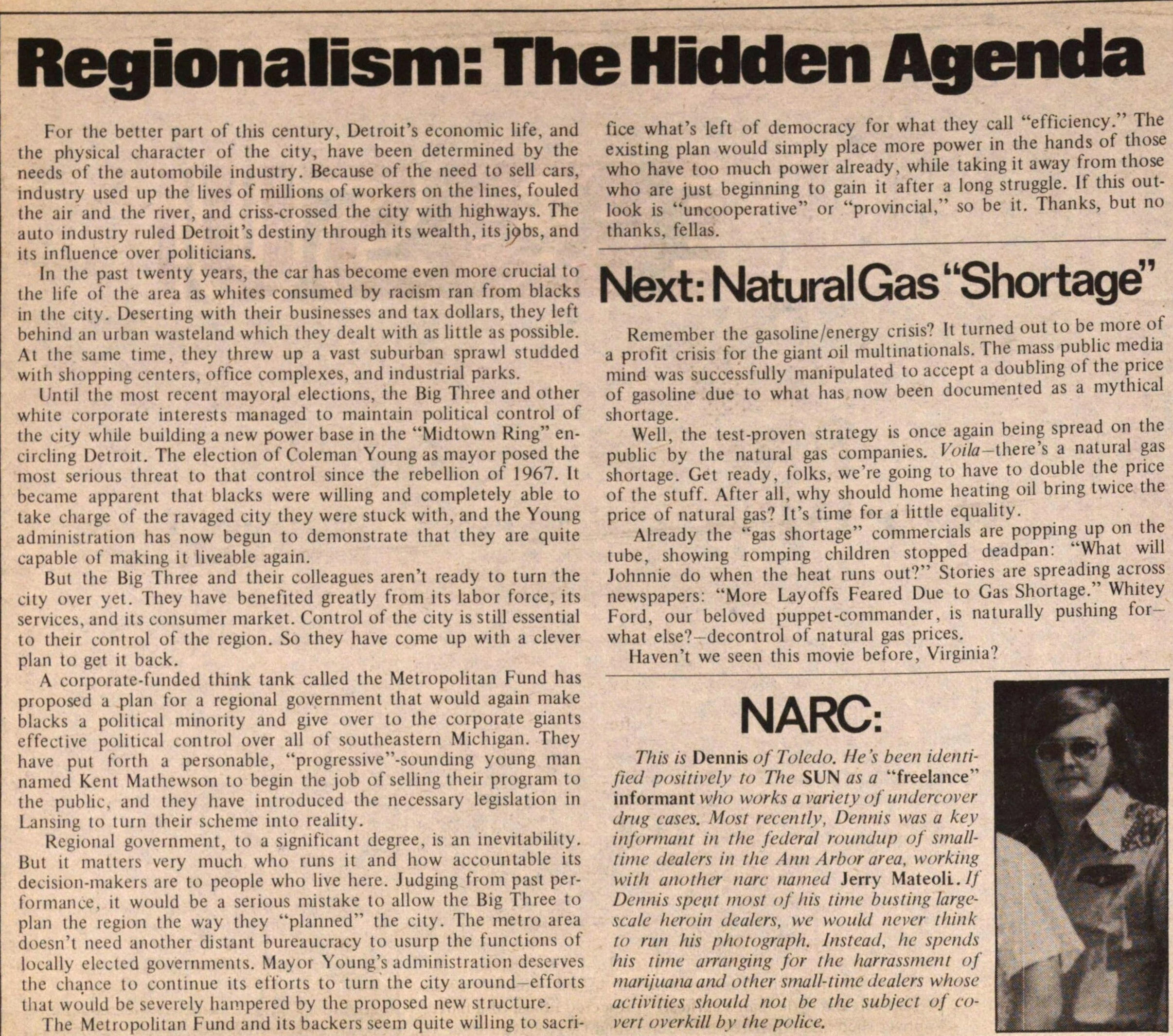Regionalism: The Hidden Agenda

For the better part of this century, Detroit's economic life, and the physical character of the city, have been determined by the needs of the automobile industry. Because of the need to sell cars, industry used up the lives of millions of workers on the lines, fouled the air and the river, and criss-crossed the city with highways. The auto industry ruled Detroit's destiny through its wealth, its jobs, and its influence over politicians.
In the past twenty years, the car has become even more crucial to the life of the area as whites consumed by racism ran from blacks in the city. Deserting with their businesses and tax dollars, they left behind un urban wasteland which they dealt with as little as possible. At the same time, they threw up a vast suburban sprawl studded with shopping centers, office complexes, and industrial parks.
Until the most recent mayoral elections, the Big Three and other white corporate interests managed to maintain political control of the city while building a new power base in the "Midtown Ring" encircling Detroit. The election of Coleman Young as mayor posed the most serious threat to that control since the rebellion of 1967. It became apparent that blacks were willing and completely able to take charge of the ravaged city they were stuck with, and the Young administration has now begun to demonstrate that they are quite capable of making it liveable again.
But the Big Three and their colleagues aren't ready to turn the city over yet. They have benefited greatly from its labor force, its services, and its consumer market. Control of the city is still essential to their control of the region. So they have come up with a clever plan to get it back.
A corporate-funded think tank called the Metropolitan Fund has proposed a plan for a regional government that would again make blacks a political minority and give over to the corporate giants effective political control over all of southeastern Michigan. They have put forth a personable, "progressive"-sounding young man named Kent Mathewson to begin the job of selling their program to the public, and they have introduced the necessary legislation in Lansing to turn their scheme into reality.
Regional government, to a significant degree, is an inevitability. But it matters very much who runs it and how accountable its decision-makers are to people who live here. Judging from past performance, it would be a serious mistake to allow the Big Three to plan the region the way they "planned" the city. The metro area doesn't need another distant bureaucracy to usurp the functions of locally elected governments. Mayor Young's administration deserves the chance to continue its efforts to turn the city around-efforts that would be severely hampered by the proposed new structure.
The Metropolitan Fund and its backers seem quite willing to sacrifice what's left of democracy for what they call "efficiency. ' The existing plan would simply place more power in the hands of those who have too much power already, while taking it away from those who are just beginning to gain it after a long struggle. If this outlook is "uncooperative" or "provincial," so be it. Thanks, but no thanks, fellas.
Article
Subjects
Freeing John Sinclair
Old News
Ann Arbor Sun